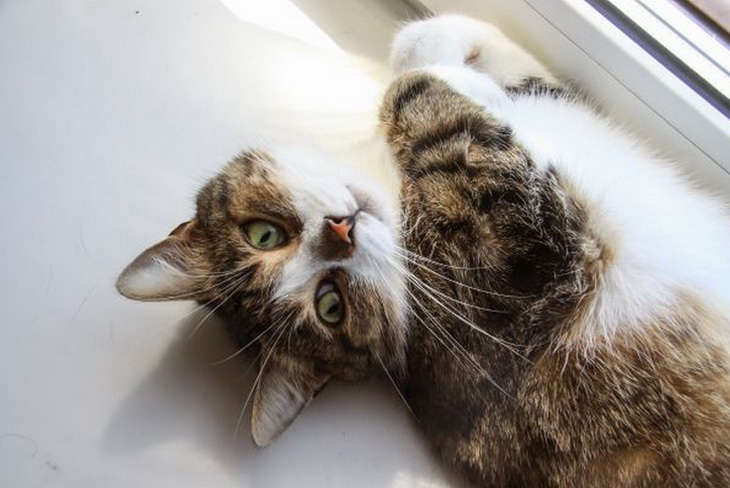What to feed a cat after a year: advice from veterinarians for the health of your pet
The first year of life has flown by, and now your kitten has become an adult.
Now your pet's nutrition requires even more attention.
After a year, cats' metabolism slows down, and an improper diet leads to obesity, which shortens life by 2-3 years.
Stern
Choose food labeled “for adult cats” (1–7 years).
Protein should be first in the composition - at least 30%.

Avoid foods containing corn, wheat and soy, as they can cause allergies.
Give wet food daily: the moisture in canned food prevents urolithiasis.
Combine with dry food, but do not mix in the same bowl - this disrupts digestion.
Natural nutrition should include:
- 80% of the diet is meat (chicken, turkey, rabbit). Do not give raw pork - the risk of parasite infestation is too high.
- 10% - vegetables (pumpkin, zucchini). Grind them into puree - cats do not digest fiber from whole pieces.
- 10% - cereals (buckwheat, rice).
Forbidden:
- Milk - Adult cats do not have the enzymes to digest lactose.
- Fish - contains thiaminase, which destroys vitamin B1.
- Onions and garlic are toxic to cats.
- Raw liver in large quantities causes hypervitaminosis A.
Adviсe
- Cats don't drink much water. Place several bowls around the house or buy a drinking fountain.
- When switching to a new food, mix it with the old one in a 25/75 ratio, gradually increasing the proportion.
- For cats with sensitive gastrointestinal tract, food with hydrolyzed protein is suitable.
Have your urine tested every six months: pH above 7.0 indicates a risk of struvites. To prevent urolithiasis, add cranberries (in powder form) or special food with methionine to your diet.
Careful attention should be paid to preventing obesity. Use puzzle feeders to slow down the intake of food, and do not forget to weigh the cat once a month. The norm is +- 200 g from the breed standard.
